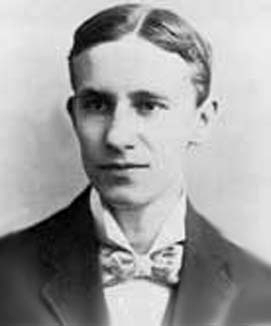Ernest Barnes facts for kids
Quick facts for kids Ernest Barnes |
|
|---|---|
| Bishop of Birmingham | |
 |
|
| Church | Church of England |
| Province | Canterbury |
| Diocese | Birmingham |
| In Office | 1924–1953 |
| Predecessor | Henry Wakefield |
| Successor | Leonard Wilson |
| Orders | |
| Ordination |
|
| Consecration | 1924 |
| Personal details | |
| Birth name | Ernest William Barnes |
| Born | 1 April 1874 Birmingham, England, UK |
| Died | 29 November 1953 (aged 79) Sussex, England, UK |
| Denomination | Anglicanism |
Ernest William Barnes FRS (born April 1, 1874 – died November 29, 1953) was a brilliant British mathematician and scientist. He later became a liberal church leader and a bishop.
He studied at King Edward's School, Birmingham, and Trinity College, Cambridge. From 1915 to 1919, he was the Master of the Temple in London. In 1924, he became the Bishop of Birmingham. He was the only bishop chosen during Ramsay MacDonald's first time as Prime Minister. His modern ideas sometimes caused disagreements with other church members. His son, Sir John Barnes, wrote a book about him called Ahead of His Age: Bishop Barnes of Birmingham in 1979.
Early Life and Schooling
Ernest Barnes was the oldest of four sons. His parents, John Starkie Barnes and Jane Elizabeth Kerry, were both head-teachers at elementary schools. In 1883, Ernest's father became an Inspector of Schools in Birmingham. He held this job for the rest of his career.
Ernest went to King Edward's School, Birmingham. In 1893, he earned a scholarship to Trinity College, Cambridge. He was a top student in mathematics. In 1898, he won the first Smith's Prize, a special award for math. After that, he became a Fellow at Trinity College.
From 1899 to 1901, he was on a committee for the Cambridge University Liberal Club. In 1902, he started teaching mathematics. He also held other roles at the college, like junior dean and tutor. In 1907, he earned his Doctor of Science (ScD) degree. In 1909, he was chosen as a Fellow of the Royal Society, a very respected group of scientists. Later, he helped the famous mathematician Ramanujan with his studies.
His Work in the Church
In 1902, the same year he became a math lecturer, Ernest Barnes also became a deacon in the church. From 1906 to 1908, he was a Junior Dean at Trinity College. In 1915, Barnes left his math career at Cambridge. He became the Master of the Temple in London.
In 1918, he became a canon at Westminster Abbey. Finally, in 1924, he was made the Bishop of Birmingham. He served as bishop until April 1953, when he retired because of poor health. He passed away at his home in Sussex when he was 79 years old. His wife and two sons survived him. There is a bronze plaque in Birmingham Cathedral in his memory. His ashes, along with his wife's, are buried beneath a stone slab there.
His Views on Peace
Ernest Barnes was a strong believer in pacifism. This means he believed that all wars are wrong and that people should solve problems peacefully. He spoke out against Britain's involvement in the Second World War. He believed that peace was always the best way.
Family Life
In 1916, Ernest Barnes married Adelaide Caroline Theresa Ward. She was the daughter of Sir Adolphus Ward. Ernest and Adelaide had two sons together. Their son John became a diplomat. He worked as an ambassador to countries like Israel and the Netherlands. Their other son, William, worked for the public and was known for his charity work.
See also
- Barnes G-function
- Barnes integral
 | Emma Amos |
 | Edward Mitchell Bannister |
 | Larry D. Alexander |
 | Ernie Barnes |

